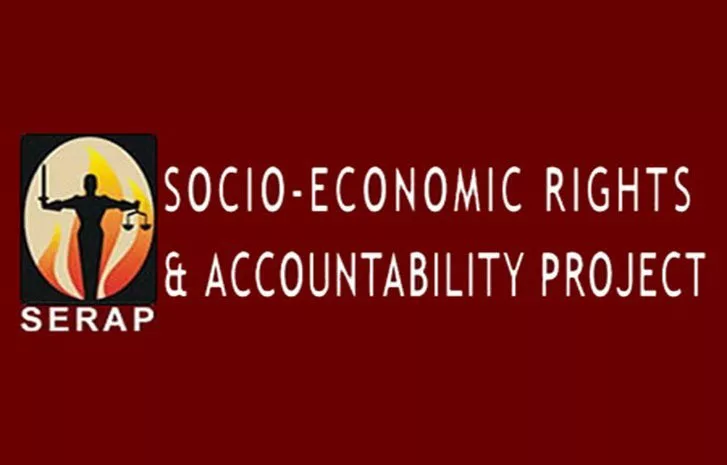Socio-Economic Rights and Accountability Project (SERAP) has threatened to institute contempt proceedings against Professor Mahmood Yakubu, Chairman of the Independent National Electoral Commission (INEC), for allegedly failing to enforce a court judgment ordering the prosecution of electoral offenders.
SERAP specifically claimed the INEC had refused to enforce a judgment delivered by Justice Obiora Egwua of the Federal High Court mandating it to pursue cases of bribery against state governors and their deputies and other electoral offences committed during the 2023 general elections.
The civil society organisation, which made the threat in an open letter dated September 28, 2024, signed by its deputy director, Kolawole Oluwadare, accused Professor Yakubu and the electoral body of trying to take the court for a ride by choosing to disobey the mandamus order issued on July 18 this year.
Justice Egwuatu had ordered INEC to seek the appointment of an independent counsel to investigate allegations of electoral offences, including bribery, vote-buying, conspiracy, and undue influence against state governors and their deputies during the 2023 general elections.
The judge also directed the INEC to promptly, thoroughly, and effectively investigate reports of electoral violence and other electoral offences committed during the 2023 general elections, identify suspected perpetrators and their sponsors, and ensure their effective prosecution.
He has further ordered INEC to swiftly prosecute all arrested electoral offenders in the 2023 general election who are in the custody of the Nigeria Police Force, Economic and Financial Crimes Commission, Independent Corrupt Practices and Other Related Offences Commission, and other law enforcement agencies.
SERAP, however, said that by ignoring the court judgment, INEC is violating the provisions of Section 287 of the Nigeria Constitution 1999 (as amended), which imposes a binding obligation on all authorities and persons in Nigeria to comply with the verdicts of all courts.
SERAP stated that the recurring cases of electoral bribery and violence mock Nigeria’s electoral process and participatory democracy. The latest allegations of electoral offences in Edo state show that INEC has learnt little from the well-documented problems during the 2023 general elections.
The organisation also maintained that INEC’s continuing failure to obey the court judgment contributes to electoral offences in several states, as demonstrated by the recently held governorship election in Edo state and impunity for electoral offences in Nigeria.
It insisted that if the Commission obeys the court judgment, it will protect the integrity of Nigeria’s electoral and legal systems.
SERAP further expressed concern that suspected perpetrators of grave electoral offences, including in the off-cycle governorship elections in Kogi, Imo and Bayelsa states, continue to enjoy impunity.
The organisation stated, “Obeying the judgment would prevent and combat allegations of electoral offences such as those witnessed in Edo state’s recently concluded governorship election and the seriously flawed local government elections in several states.
“Obeying the judgment will restore public trust and confidence in Nigeria’s electoral process. It will also ensure compliance with constitutional provisions, international standards, and the Electoral Act.
“By immediately complying with the judgment, you will show Nigerians that the electoral body is willing and able to end many years of brazen impunity for electoral offences in the country.
“Obeying the court judgment would reinforce the importance of the Nigerian Constitution, Electoral Act, and the country’s international obligations. The immediate enforcement and implementation of the judgment by INEC will be a victory for the rule of law and fair, representative, and violent-free elections in Nigeria.
“Justice Egwuatu’s judgment in lawsuit number: FHC/ABJ/CS/583/2023, read in part: ‘Being citizens of this great country, SERAP and its members have the legal interest whose enjoyment or enforcement directly or substantially depends on the performance of public duty by INEC.
“In requesting the performance of the public duty imposed on the electoral body, SERAP has demonstrated a great zeal of patriotism.
“The substance of SERAP’s grouse is the violence associated with elections in Nigeria, which tends to prevent citizens from exercising their franchise during elections, thus preventing credible polls and, in the long run, credible leaders.
“There is no gainsaying the fact that electoral violence and the associated crimes committed during elections in Nigeria is a great bane to the development of this Country both democratically and economically.
“SERAP has also shown vide exhibit A8, a letter addressed to INEC requesting, amongst other things, the appointment of an independent counsel to investigate allegations of electoral offences, including bribery, conspiracy, and undue influence against state governors and their deputies during the 2023 general elections.
“Exhibit A8 thus clearly demands the performance of the duty made by SERAP. Until the date of filing the action, the electoral body failed to, refused, and or neglected to carry out or perform the duty requested by SERAP.
“Undoubtedly, the Electoral Act 2022 created some electoral offences. Sections 123, 124, 125, 126, 127, 128, and 129 are some of the Electoral Act provisions that created specific electoral offences.
“Trial of offences created by the Electoral Act is done in a Magistrate Court or a High Court of a State where the offence is committed, or the Federal Capital Territory, Abuja. See Section 145(1) of the Electoral Act.
“By section 145(2) of the same Act, prosecution for the offences shall be undertaken by legal officers of INEC or any legal practitioner appointed. Therefore, it imposes on INEC the performance of a public duty.
“Section 24(d) and (e) of the Nigerian Constitution 1999 [as amended] recognises the rights of citizens to take steps towards advancing the community where they reside.
“The section provides that ‘it shall be the duty of every citizen to (d) make a positive and useful contribution to the advancement of progress and well-being of the community where he resides; (e) help appropriate and lawful agencies in the maintenance of law and order,” SERAP stated.





